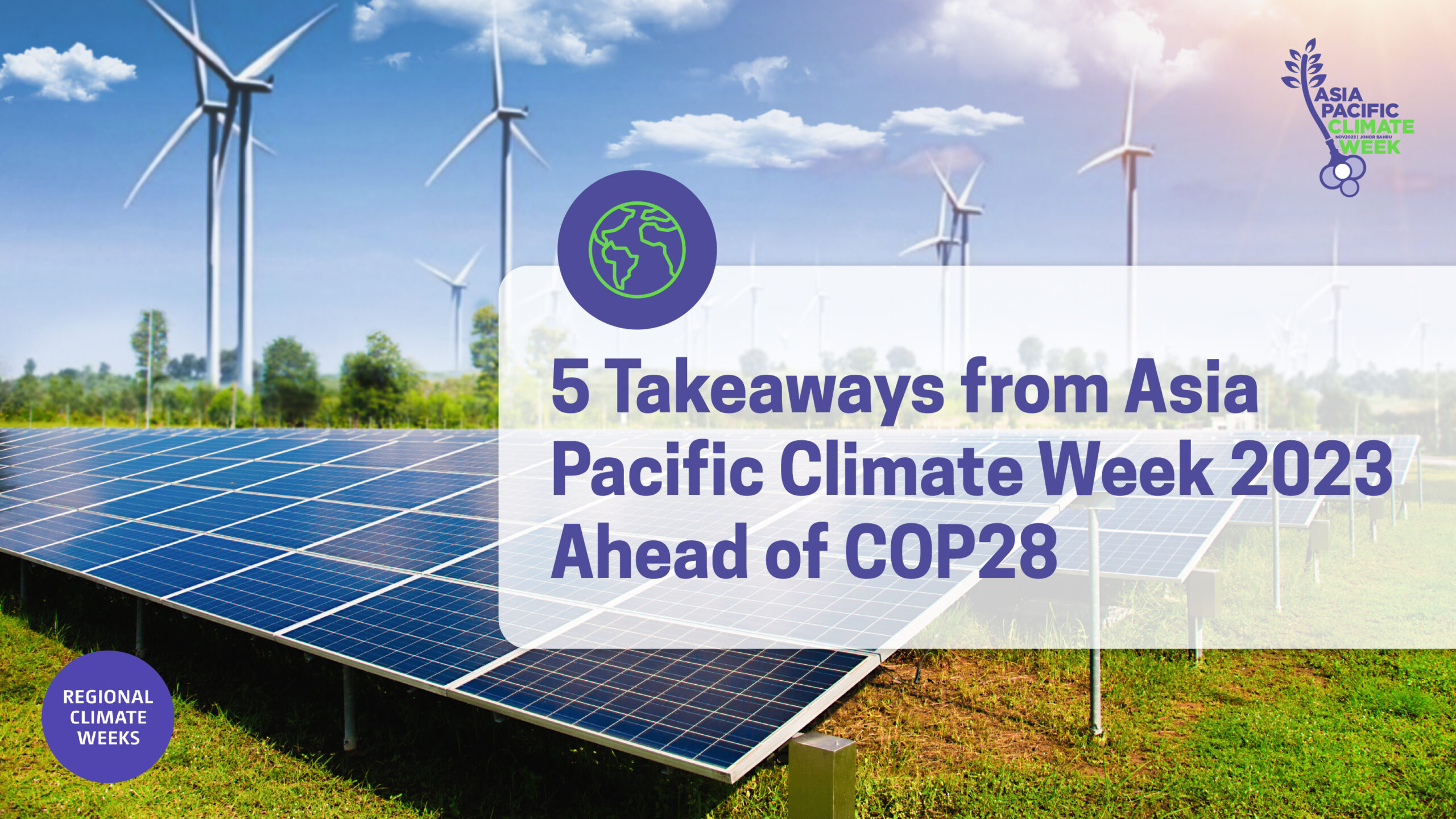
Asia Pacific Climate Week (APCW) 2023 has come to a close, and we stand at a pivotal juncture in the global climate dialogue. The conference was the last in this year’s series of Regional Climate Weeks, setting the stage for COP28 where the first global stocktake is set to conclude.
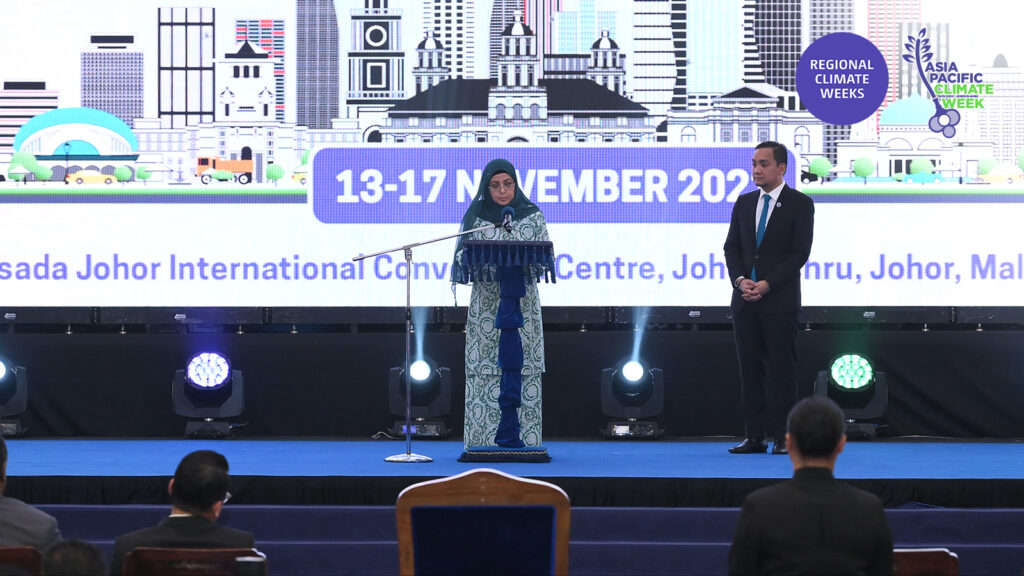
Held in Johor, the host city of this year’s APCW provided a platform for crucial conversations and exemplified leadership in climate action. The launch of the Johor Sustainability Centre (JSC) by Permaisuri of Johor, Her Majesty Raja Zarith Sofiah binti Almarhum Sultan Idris Shah and the Johor Green Deal initiative by the MB of Johor, Datuk Onn Hafiz bin Ghazi was a momentous milestone which demonstrated state-level commitment to sustainability.
JSC will work closely with academic and research institutions to provide the necessary research needed for climate action in the state of Johor. Meanwhile, the Johor Green Deal, which focuses on five key areas—energy, transport, mobility, land use, nature and water, and low-carbon cities—will serve as a framework for the state’s green future.
As we reflect on the week of discussions and initiatives unveiled at APCW, here are 5 key takeaways for climate action and the path forward for Asia Pacific
Regional Cooperation is Key for Advancing Climate Solutions
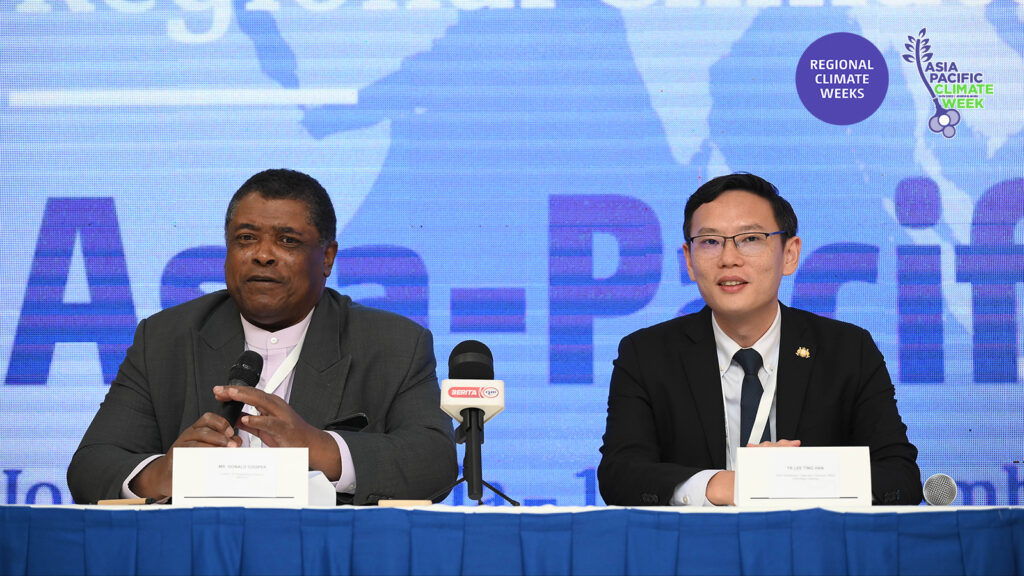
The call for regional cooperation resonated throughout the conference. The Asia Pacific region, with its unique environmental challenges and socio-economic diversity, requires a collaborative approach to drive ambitious climate action. This cooperation is critical not only for mitigating climate impacts but also for addressing the interconnected issue of urbanisation, poverty, and development. No single nation can navigate the climate crisis alone, and regional collaboration is a requirement for effective solutions.
Strong Policy Action Can Steer Us Towards a Sustainable Future
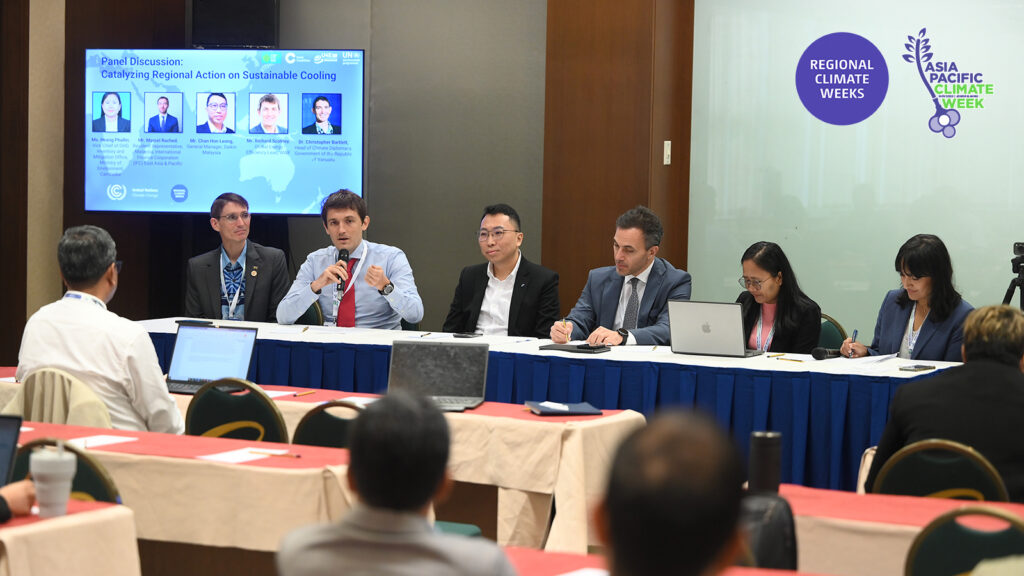
To facilitate a just transition, effective policy frameworks encompassing environmental sustainability and the equitable distribution of resources and opportunities are needed. Policymaking must address the disparities in resources and capacities among communities, ensuring that the transition to a low-carbon economy is inclusive and just.
Particularly, in the energy sector, policy interventions are essential to manage the sector’s emissions. This is where initiatives like Malaysia’s National Energy Transition Roadmap (NETR) come into play. The Roadmap’s 10 flagship catalyst initiatives demonstrate how national strategies can effectively attract investments, generate job opportunities, and support the country’s 2050 net-zero GHG emissions target.
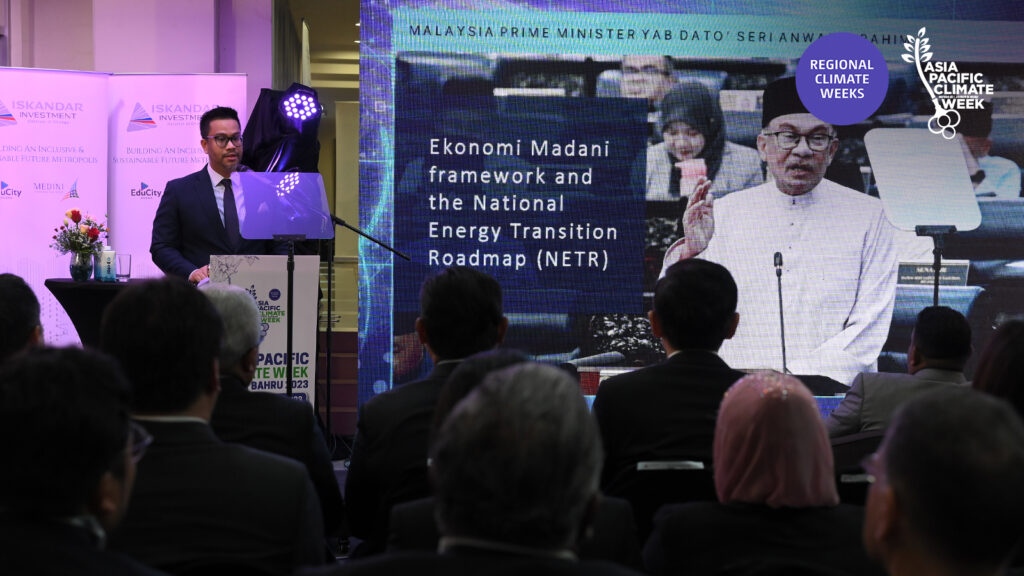
Beyond national policies, the role of local governments and municipalities in climate action was also highlighted. These entities, as both consumers of energy and operators of municipal infrastructure, have a direct impact on the transition to a low-carbon future. Thus, state-level policies must be designed to align with federal objectives while empowering local governments in their climate efforts.
Climate Financing is Essential for Equitable Climate Solutions
Climate financing is needed for impactful climate action. There is a growing recognition that private sectors play a pivotal role in financing sustainable solutions. However, bridging the investment gap requires policies that are informed by data and mechanisms that de-risk investments, making them attractive to private financiers.
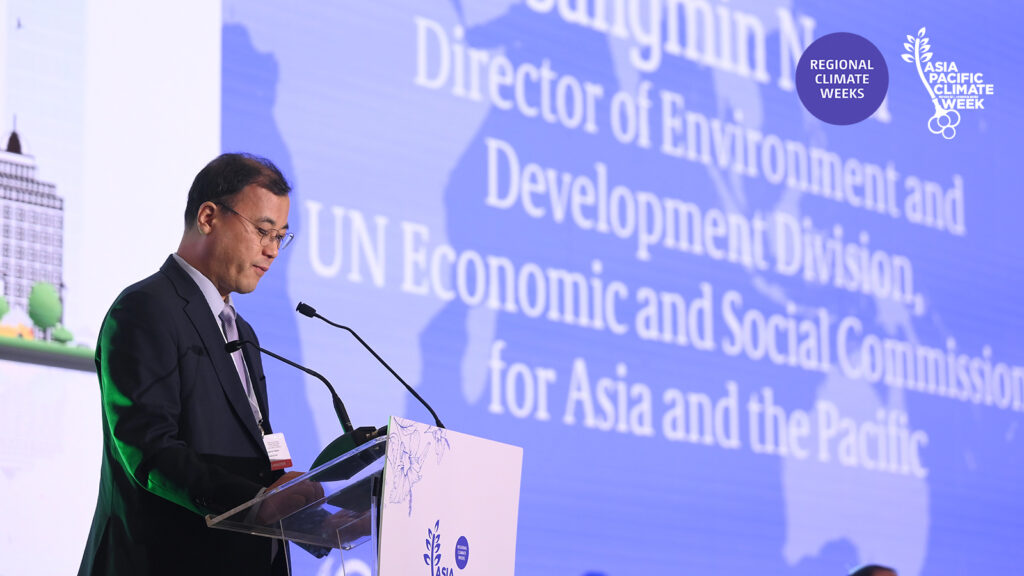
A key aspect of this conversation was the importance of mobilising domestic resources and capacities. Building capacity at the local level, particularly within banks and financial institutions, is crucial for developing context-specific financial solutions. This approach not only strengthens the financial infrastructure, but also ensures that investments are channelled to where they are needed the most.
The potential of carbon projects was also explored as a means to benefit communities. These projects, if designed thoughtfully, can contribute to local development while advancing climate goals. In addition, blended financing was also highlighted as an essential approach to mobilise commercial and private finance. Blended finance can create opportunities for more significant, impactful investments, particularly in regions and communities that are traditionally underserved.
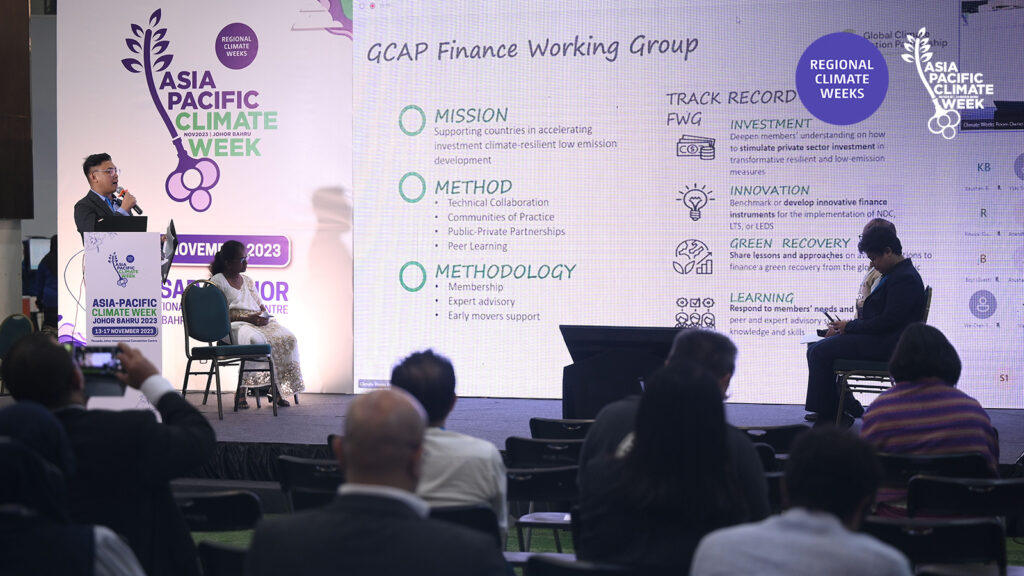
In essence, discussions underscored the need for financial strategies that are both inclusive and innovative. Investments should promote sustainable development while upholding human rights and benefitting vulnerable communities.
The ‘Just’ in a Just Transition Must Be Prioritised
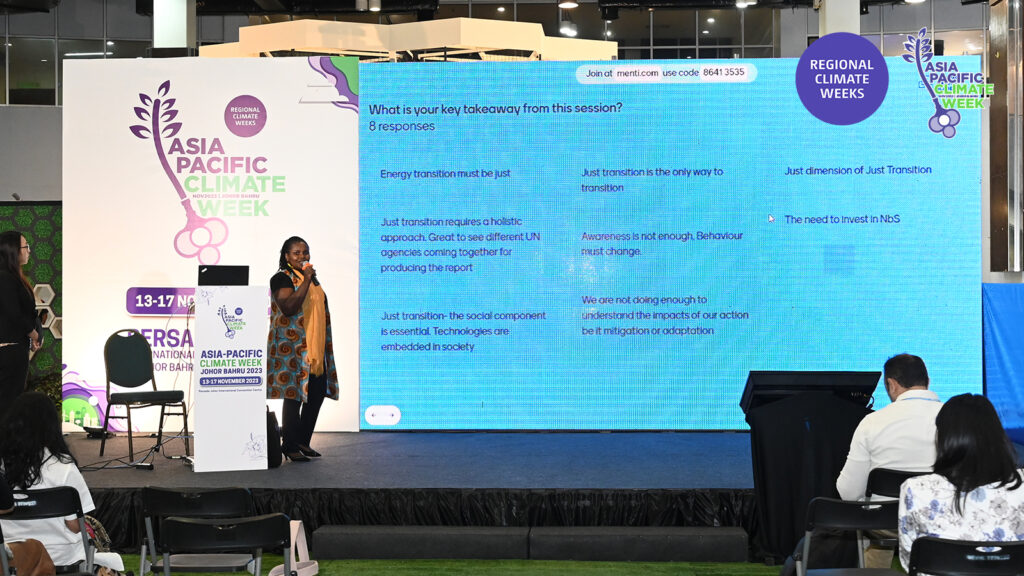
A just transition goes beyond environmental considerations to encompass social and economic dimensions. Asia Pacific’s transition to renewable sources must be equitable and address the needs of those displaced or impacted by the shift away from fossil fuels. Strategies must include upskilling or reskilling programs, gender equity, and active community engagement to ensure a transition that is environmentally sustainable, socially just, and economically viable.
Youth, Women, and Indigenous Communities Must Play an Active Role
Finally, the conference underscored the importance of involving youth, women, and indigenous communities in climate action. These groups are often the most affected by climate change yet remain underrepresented in decision-making processes.
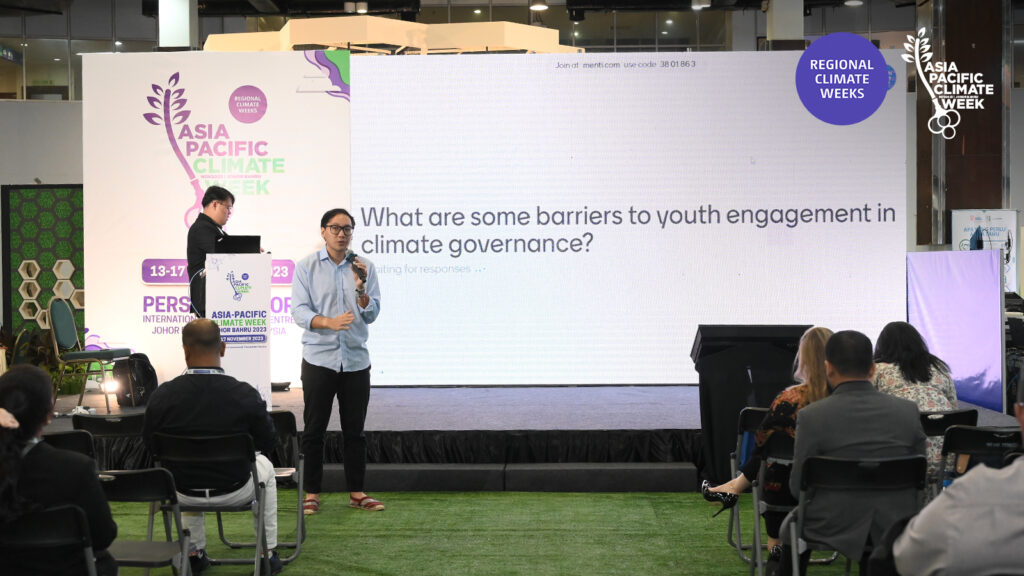
Creating platforms for youth leadership and engagement can empower them to explore innovative initiatives to shape a sustainable future for the planet that they will inherit. In the same breath, women often face challenges such as a lack of land rights and socio-economic barriers that limit their participation and impact in environmental efforts. Empowering them through secure land rights, enhanced access to resources, and greater representation in climate governance structures will allow their insights and needs to be incorporated into climate solutions.
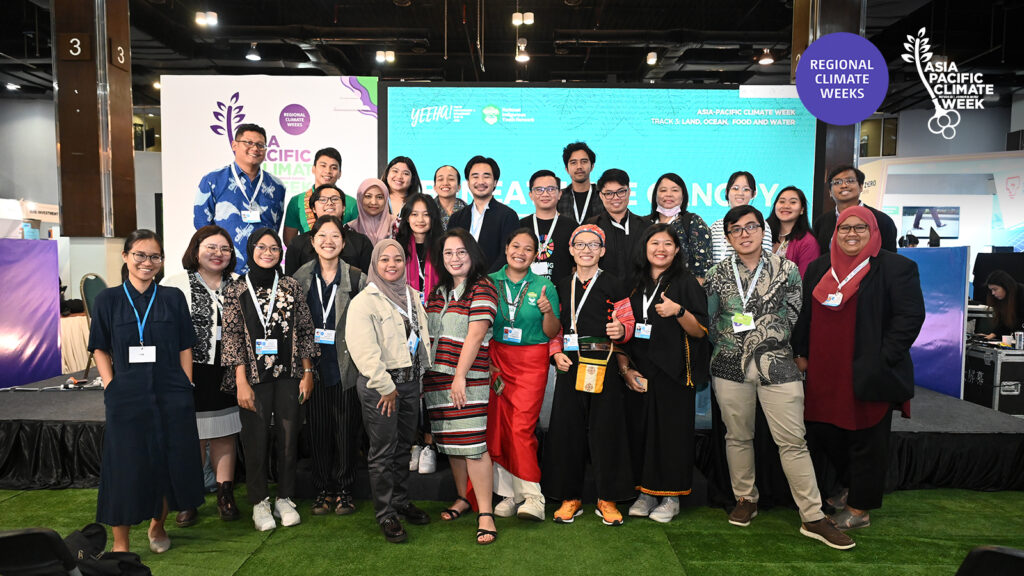
Additionally, indigenous communities, with their deep-rooted connection to the environment and wealth of traditional ecological knowledge, offer invaluable insights into environmental preservation. Discussions stressed the need to recognise customary land tenure and incorporate indigenous wisdom and practices into broader climate strategies. Respect for their cultural heritage and rights, along with active involvement in decision-making processes, is essential for designing effective and culturally sensitive climate actions.
As we look ahead to COP28, the insights from APCW 2023 provide critical considerations for businesses, policymakers, and community leaders. Climate action requires a balanced approach that integrates environmental goals with social and economic considerations. As stakeholders in the global climate agenda, Asia Pacific’s response to climate change must be one that is inclusive, informed, and forward-thinking to set the course for a sustainable and equitable future.
APCW 2023 was organised by the United Nations Framework Convention on Climate Change (UNFCCC) and hosted by the Government of Malaysia, in Johor.
For more information, follow us on Facebook, Instagram, X, or LinkedIn.